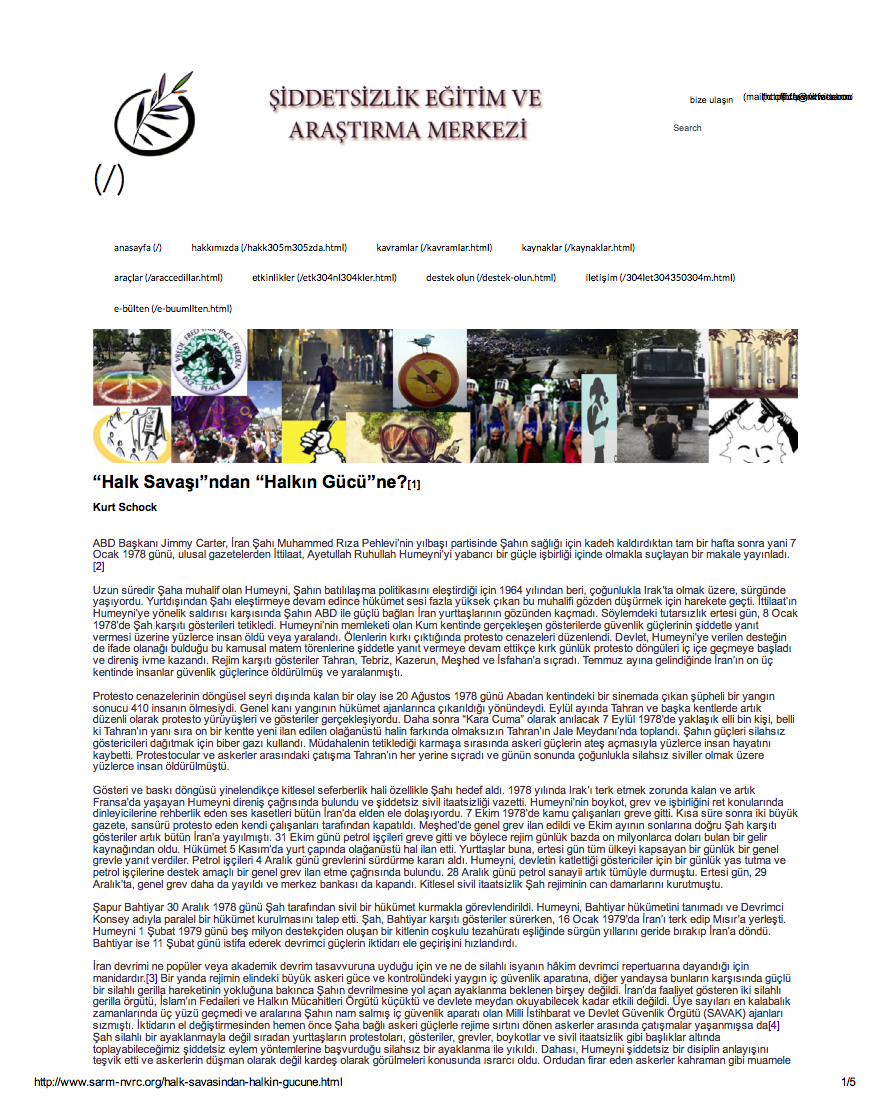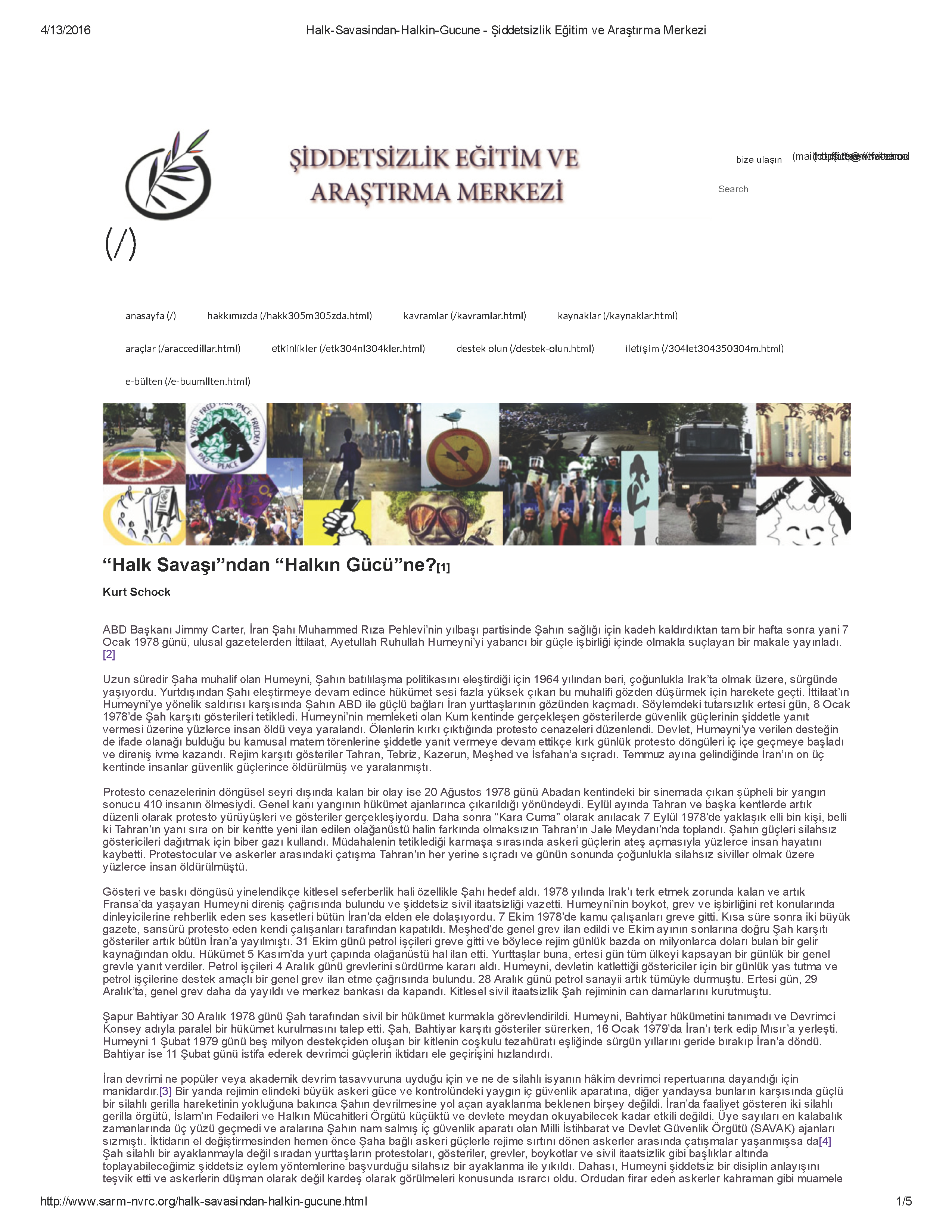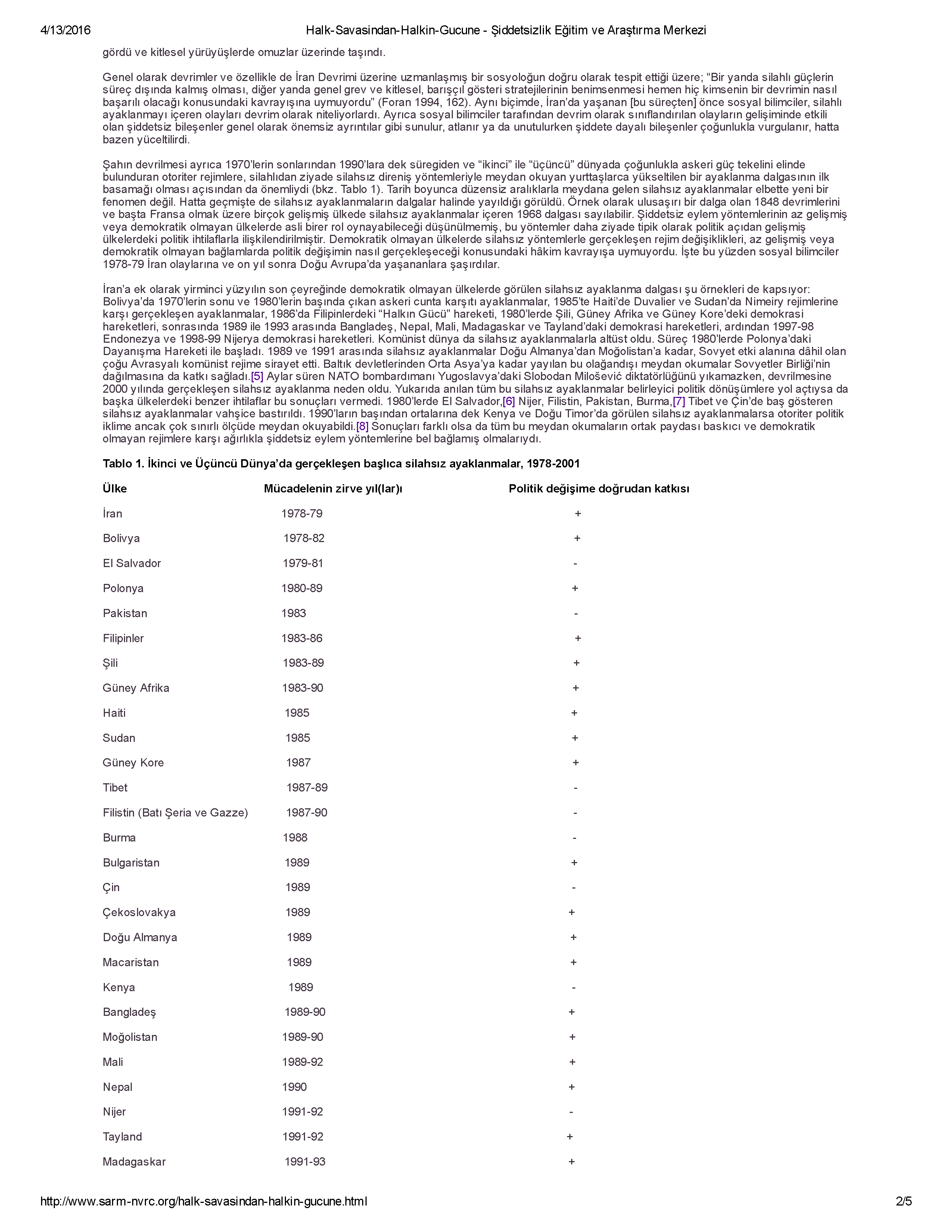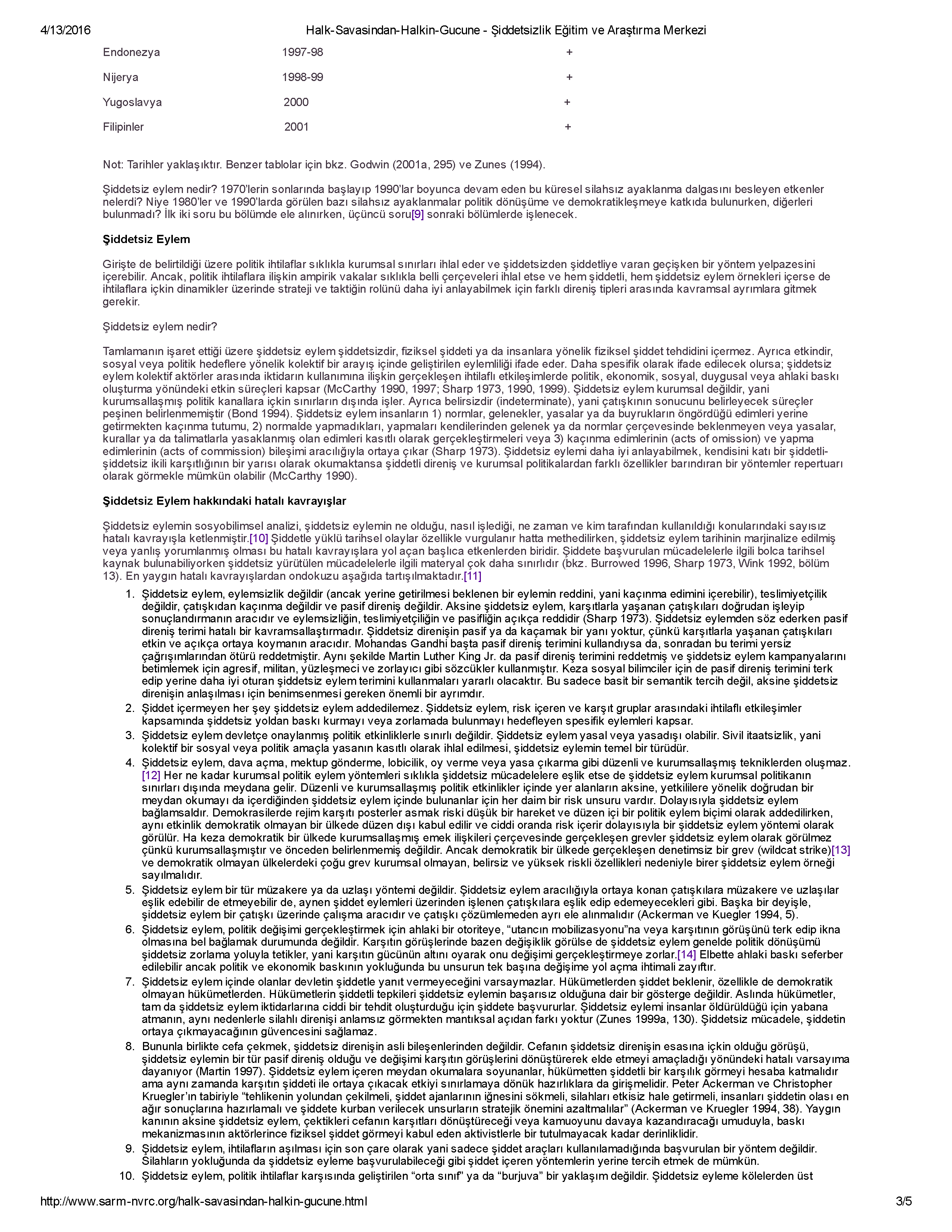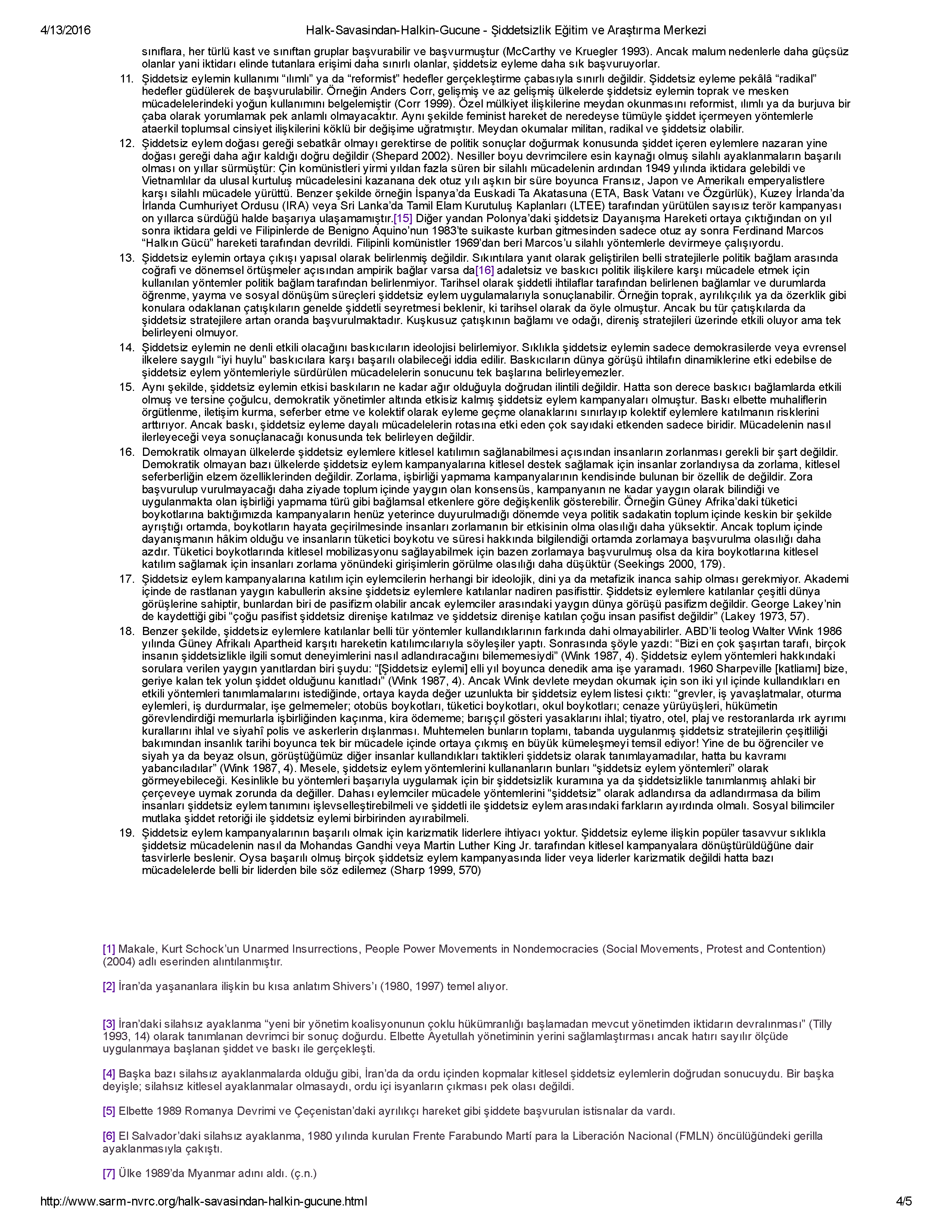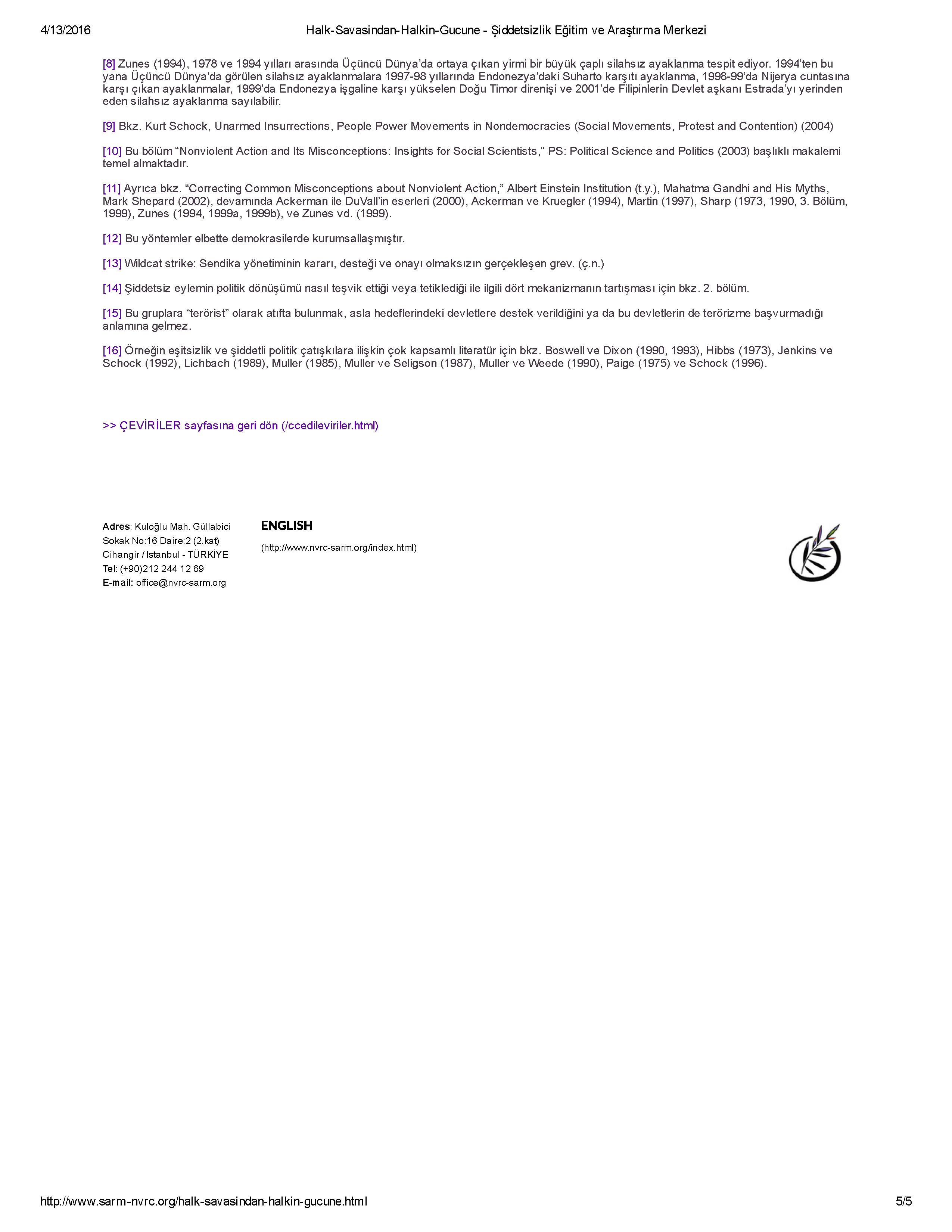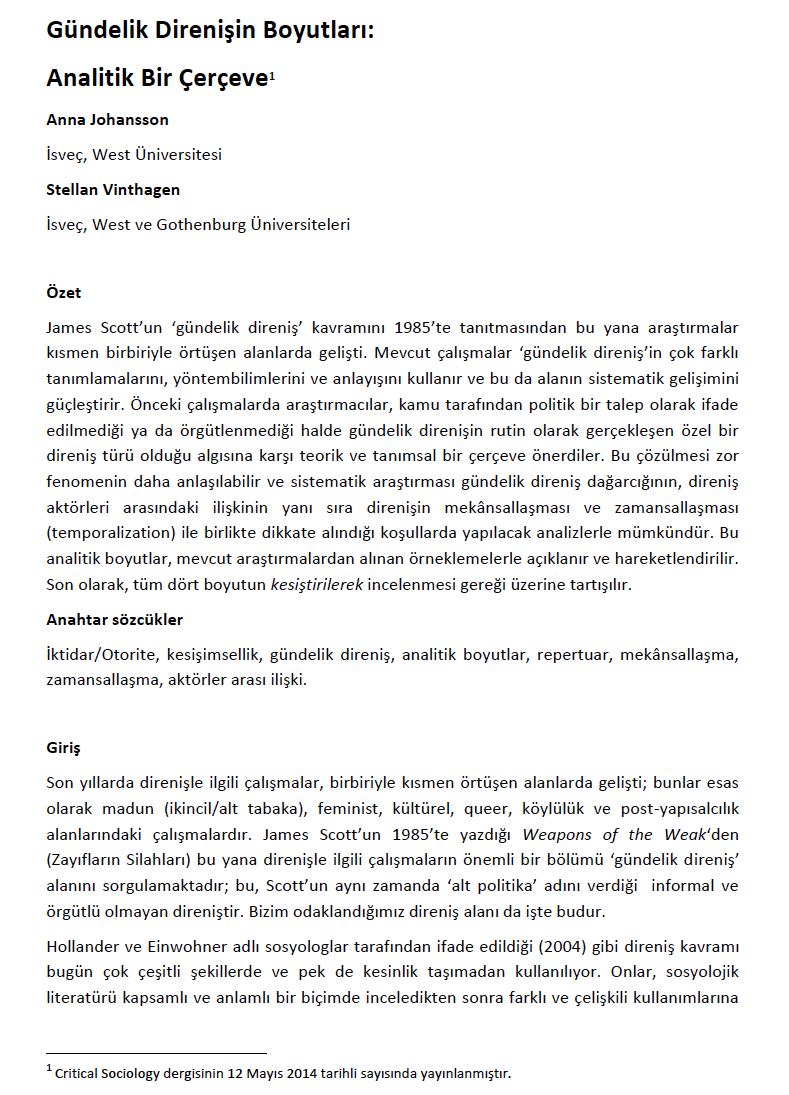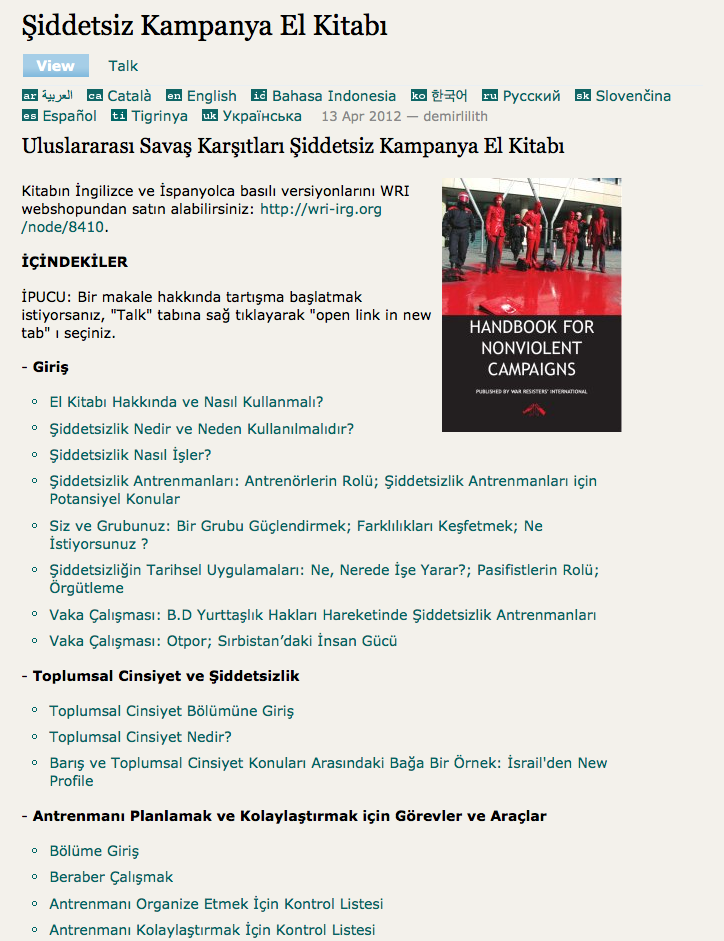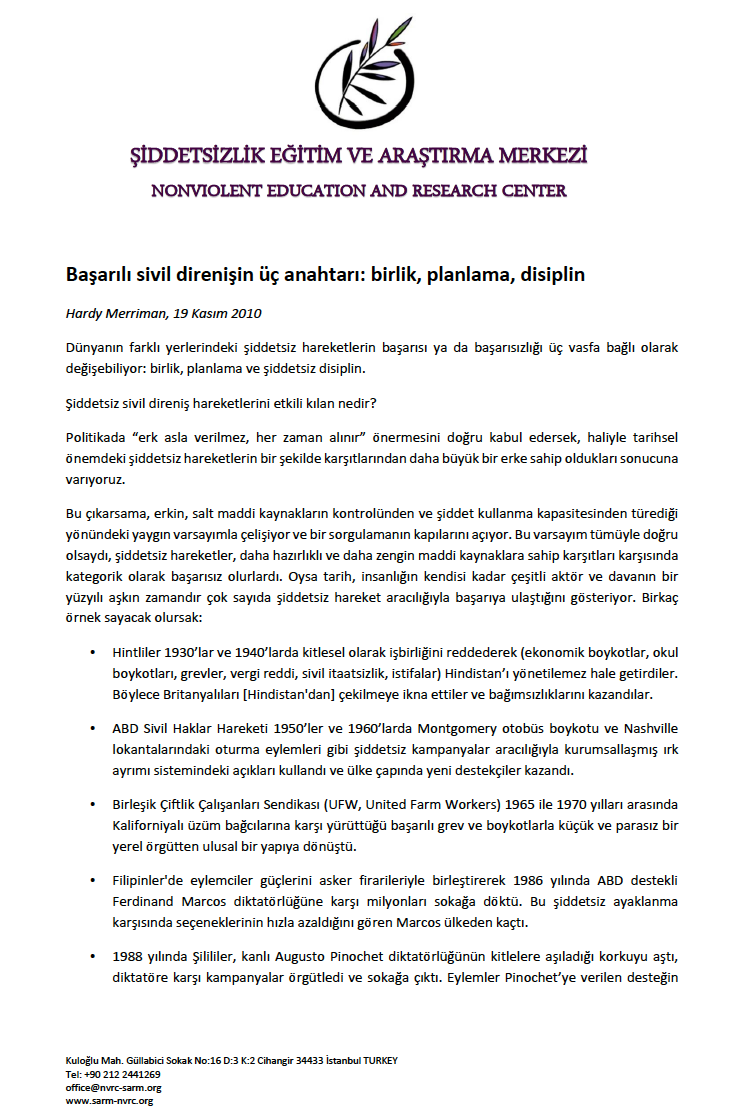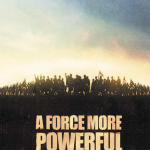“Halk Savaşında” “Halkın Gücüne”?
Note: Turkish translation of Chapter 1 of Kurt Schock’s book, “Unarmed Insurrections: People Power Movements in Nondemocracies.”
In the last two decades of the twentieth century, a wave of “people power” movements erupted throughout the nondemocratic world. In South Africa, the Philippines, Nepal, Thailand, Burma (Myanmar), China, and elsewhere, mass protest demonstrations, strikes, boycotts, civil disobedience, and other nonviolent actions were brought to bear on a rigid political status quo.
In this book, Kurt Schock compares the successes of the antiapartheid movement in South Africa, the people power movement in the Philippines, the pro-democracy movement in Nepal, and the antimilitary movement in Thailand with the failures of the pro-democracy movement in China and the anti-regime challenge in Burma. Schock develops a synthetic framework that allows him to identify which characteristics increase the resilience of a challenge to state repression, and which aspects of a state’s relations can be exploited by such a challenge.
By looking at how these methods of protest promoted regime change in some countries but not in others, this book provides rare insight into the often overlooked and little understood power of nonviolent action.
University of Minnesota Press, 2005
Çeviri, siddetsizlikmerkezi.org, April 2016
ISBN-10 (English): 0816641935
ISBN-13 (English): 978-0816641932
